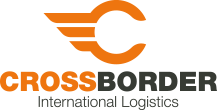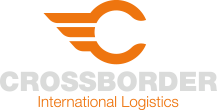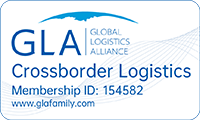In order to grow a business and stay relevant in today’s marketplace, it is important to stay on top of key trends and explore new opportunities. However, with an ever-changing marketplace this can be hard to do, as we’ve seen in recent years there can be unforeseen obstacles which occur such as a global pandemic and global supply issues which can make it seemingly impossible to keep up with. Here we look at some of the ways a business can look to grow and the areas in which to focus on to do so.
- New Markets
The number one-way businesses can look to expand is to explore potential new markets. Accessing new markets internationally has the potential to increase revenue for your business to fund further expansion or research and development opportunities.
There are many things that will need to be considered when moving into new markets, however, such as tax laws, because as soon as you start making international sales you will need to have a handle on customs liabilities and tax obligations.
Customs also requires the use of Harmonised System Codes (HS Codes) which are used globally to identify products for duties and taxes as well as data and statistics purposes. It will be of great importance when expanding into the international marketplace to ensure the correct use of HS codes when shipping across borders.
- Nuances of Different Markets
As mentioned above, when moving into new markets it is important to make sure that tax compliance is correct and that all customs processes are adhered to for different markets. Understanding tax liabilities for global markets can be one of the most complicated processes for companies to comprehend.
Tax laws are unique to each country, for example in the US there are over 10,000 sales and use tax jurisdictions, Brexit has meant trading with the UK is significantly more complicated for EU businesses and Europe is soon to implement E-invoicing which will enable the public sector and private companies to receive and process electronic invoices according to EU standards. These laws and regulations are changeable and constantly evolving with the digital world so when expanding into these markets it is important to stay compliant and up to date.
- Preparing for Peak Sales Periods
Another challenge for growing companies is keeping up with supply and demand, particularly during peak sales periods such as Christmas and the increasing popularity of Black Friday events. Meeting the demands of such periods can be difficult to predict and when scaling up you will need to be prepared to handle an increase in volume both in digital transitions and the physical processes of picking, packing, delivery and returns. This is especially true when considering international markets and the added time of shipping and cost of receiving returns.
The first step is in identifying when your peak seasons are likely to be as this will vary from business to business. A company selling toys will have a very different peak sales period to that of one selling garden furniture. Knowing when these peaks are likely to be will give you dates and time periods to prepare for and work towards. This could involve some market research when branching out into new markets as domestic markets are much easier to analyse simply due to their familiarity.
Take some time once peak sales periods are over to look at the data and review the capabilities of your website and shipping processes. Be prepared to consistently analyse what is working and what is not when it comes to selling internationally as every step counts in making sure there are as few delays as possible.
- Turn to Technologies
One way to analyse data and closely examine any flaws in the sales process is to have the right technologies in place which can make you more time and cost efficient in the long run. Integrated solutions can help you to keep an eye on stock levels, offer tracking for customers and communicate with suppliers easily. These kinds of technologies usually offer real time updates so nothing can go overlooked, also lowering the risk of avoidable delays.
- Focus on Customer Loyalty and the Customer Experience
Overall, it is important to focus on the needs and wants of your customers. Putting all the above in place should mean you are focussing on your customer experience and ensuring they are having a positive one to encourage loyalty and repeat purchases. A positive shopping experience is one of the most important factors in customer retention, especially in the world of fast-moving consumer goods.
Customers expect a fast and cost-effective service and failing that they should always experience great communication and transparency. The use of automation and a digital approach to services will stand businesses in good stead for new and emerging opportunities to improve their customer experience. Implementing the above advice can help your business to expand and grow into new areas, however no matter which markets you are operating in, the customer should be your focus as without them there will be no growth.



